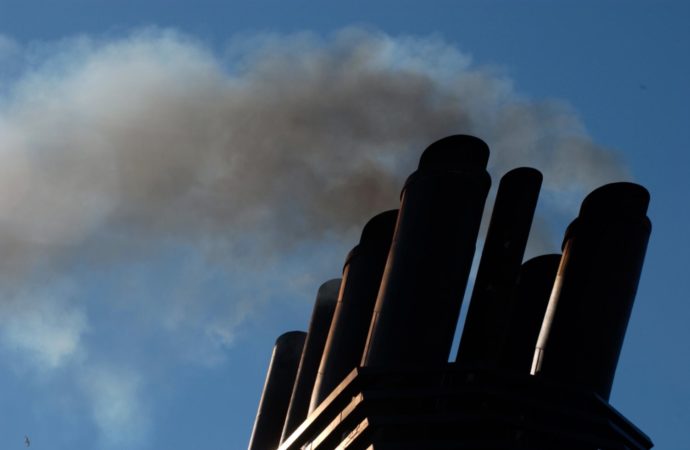Response: Impacts of Black Carbon Emissions from Very Low Sulphur Fuel Oils
London, 23 July 2020:- Responding to a LinkedIn post by Francisco Malta of VM Industrials – Aderco Oceania, and a subsequent statement by the International Bunker Industry Association (IBIA) regarding black carbon emissions from very-low sulphur fuel oils (VLSFOs), Clean Arctic Alliance Lead Advisor Sian Prior said [1]:
“It is vitally important that uncertainties of this kind do not delay urgently-needed action to reduce black carbon emissions from ships. We know that black carbon is a short-lived climate forcer – it is the strongest light-absorbing component of particulate matter, and is a critical contributor to human-induced climate heating, especially in the Arctic where the impact of black carbon emissions is magnified. We also know that black carbon has a negative impact on human health, including respiratory diseases and premature death [2]. Internationally, efforts are being made to reduce emissions of black carbon from all sources. In 2011 the United Nations Economic Commission for Europe (UNECE) urged the International Maritime Organization (IMO) to act on black carbon, while in 2013/14 the Climate and Clean Air Coalition (CCAC) renewed a call for action on black carbon emissions from the shipping sector. In 2017, the Arctic Council established a target of a 25-33% reduction in black carbon emissions below 2013 levels by 2025 for all sources.”
“Yet, black carbon emissions from shipping in the Arctic are rising. Between 2015 and 2019 there was a 73% increase in black carbon emissions from ships using heavy fuel oil (HFO) in the Arctic, according to soon-to-be published research from the International Council on Clean Transportation [3]. While IMO Member States have spent over a decade considering black carbon emissions from shipping, defining black carbon, deciding how best to measure black carbon, there has so far been no action agreed to reduce black carbon emissions from shipping.”
“It is clear that there is considerable uncertainty around the composition of the new VLSFOs, the relative importance of the paraffinic and aromatic content and the emissions that result from these new fuels. It is also clear from published work that there are many variables which have an impact on the efficiency of the “burn” of the fuel and affect black carbon emissions. There is a small amount of published work indicating that there could be higher black carbon emissions from VLSFOs, the new LinkedIn post suggesting in addition that new VLSFO fuels may emit higher black carbon emissions, and the fuel industry’s reassurances that “VLSFOs delivered to ships have so far generally been more paraffinic and less aromatic than the HSFOs they have replaced” [4,5]. Frustratingly however, there is a lack of publicly available, independently validated data from measurements of VLSFOs.”
“However, what is important now is the effort to significantly reduce black carbon emissions from shipping. This is possible with a rapid switch from HFO or VLSFOs to lighter, cleaner distillate fuels. A global switch to distillate would need to be phased in to ensure sufficient supply. However, a switch to distillate for ships operating in and near to the Arctic, where the impact of black carbon emissions is even greater, is feasible now and is urgently needed.”
“The Clean Arctic Alliance is calling for IMO Member States to require ship operators to switch from HFO or VLSFOs to distillate fuels or other cleaner alternative fuels, when operating in or near the Arctic. A switch from HFO to distillate fuels will reduce black carbon emissions by around one-third. This would then allow the installation of an efficient particulate filter (already required for road transport) which would reduce black carbon emissions by over 90%.”
Contacts:
Dave Walsh, Communications Advisor, Clean Arctic Alliance [email protected], +34 691 826 764
Notes:
[1] Why new VLSFO 0.5% Sulphur fuels may emit higher Black Carbon Emissions
https://www.linkedin.com/pulse/why-new-vlsfo-05-sulphur-fuels-emit-higher-black-carbon-malta/
IBIA questions new claims about VLSFO and black carbon emissions
https://ibia.net/ibia-questions-new-claims-about-vlsfo-and-black-carbon-emissions/
[2] Arctic Council Expert Group On Black Carbon And Methane, Summary of Progress and Recommendations 2019 https://oaarchive.arctic-council.org/handle/11374/2411 [3] Comer et al. (forthcoming). Analyzing the effectiveness of the International Maritime Organization’s proposed Arctic heavy fuel oil ban. International Council on Clean Transportation.https://twitter.com/CleanArctic/status/1285602374896300033
IMO agrees that we can control black carbon emissions from ships. But will we?
https://theicct.org/blog/staff/imo-agrees-we-can-control-black-carbon-emissions-ships-will-we
[4] PPR 7/8: Initial results of a Black Carbon measurement campaign with emphasis on the impact of the fuel oil quality on Black Carbon emissions [5] : IBIA takes issue with assertions over VLSFOs’ black carbon emissions
About the Clean Arctic Alliance
The following not-for-profit organisations form the Clean Arctic Alliance, which is committed to a ban on HFO as marine fuel in the Arctic:
90 North Unit, Alaska Wilderness League, Bellona, Clean Air Task Force, Green Transition Denmark, Ecology and Development Foundation ECODES, Environmental Investigation Agency, European Climate Foundation, Friends of the Earth US, Greenpeace, Iceland Nature Conservation Association, Nature And Biodiversity Conservation Union, Ocean Conservancy, Pacific Environment, Seas At Risk, Surfrider Foundation Europe, Stand.Earth, Transport & Environment and WWF.
More more information visit https://www.hfofreearctic.org/
Twitter: https://twitter.com/CleanArctic
Photo: Jonathan Eastland/Ajax/Alamy

